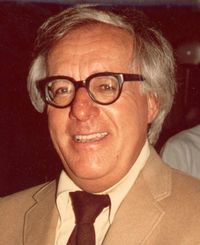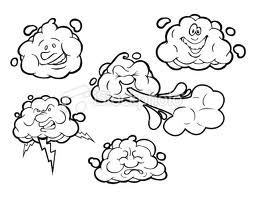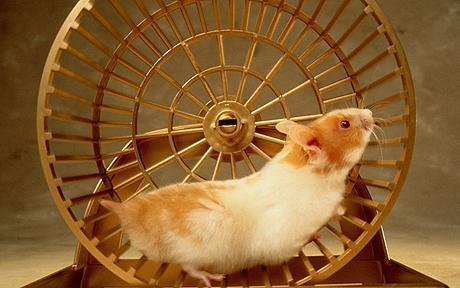P.A. Wilson's Blog, page 29
June 7, 2012
Do you treat your flock the same way you treat your tribe?
When I worked in the business world there was a time when we were told to think about our tribe. The latest business book by Seth Godin was Tribes and like good little business people we did try to find out who our tribe was and connect to them. 
Now I run my own business – consulting and writing – I think that there is more to it than just the tribe, I think we all need our flock.
What do I mean by flock?
This is the group of people who support you and who you support. For me it’s other writers. We don’t all write the same type of book. Some of us write memoir, some short stories, some novels, and some screen plays, but we do understand the challenges and pitfalls of writing as a craft.
We are in it for the long haul, helping each other build our writing chops. We share successes and laugh at our stumbles.
What do I mean by Tribe?
These are the people you attract with excitement. You catch their attention and if you treat them right, they follow you. You need to identify them, find them and entertain them. You engage them with your product and you can lose them as fast as you gained them if you bore them.
For me these are my readers. I have three tribes of readers – Urban Fantasy, Mystery/thriller and Fantasy Romance. I find them by getting reviews and creating campaigns and doing give-aways. If I don’t give them good stories, I lose them.
Don’t get me wrong, I’m not saying tribes are fickle, I’m saying I have a responsibility to be true to them. I can’t bring them to me and then just leave them hanging.
The bottom line
Just like any business, an author needs tribes. They buy your product, they tell their friends and they build a bigger tribe for you. Give them good books on a regular schedule and they’ll stick with you.
And you need your flock too, but they thrive as a community of support. They help you and you help them.
Don’t treat your flock like a tribe, and don’t treat your tribe like a flock.
June 6, 2012
Ray Bradbury passes at age of 91
The news came up on my Google Reader page. Ray Bradbury died today. I have been thinking about why I feel saddened by that. He was 91 and he’d had a fairly healthy life. I didn’t know him in person, and it’s been years since I read his books. 
He left a legacy
I think I miss him because he represents a generation of science fiction writers who changed my life. When I first picked up a Sci Fi book, I realized that there was more to imagination then just fitting a story into the world we know.
It was the beginning of a journey that, for me, included becoming a writer myself. I came to realize that if something could be imagined, it could be true.
Even if we never colonize another planet or moon, even if we never meet an alien, even if we can never make the jump into hyperspace, I’ve been there.
We have great authors today, but Bradbury and his peers legitimized speculative fiction. These are the shoulders we stand on.
My thoughts are with his family.
June 5, 2012
Being yourself online, why is it so hard?
 It may just be me, but I find some advice hard to implement. I’m not talking about unwanted advice. I’m talking about advice I’ve asked for, advice I want to follow. This particular topic is about being online as a person, not an advertisement.
It may just be me, but I find some advice hard to implement. I’m not talking about unwanted advice. I’m talking about advice I’ve asked for, advice I want to follow. This particular topic is about being online as a person, not an advertisement.
We are told repeatedly, it’s evil to sell your book, you need to be yourself and people will find you.
It starts with who am I?
If only there were one answer to that. I’m a different person in different situations. When I’m consulting, I’m facilitative. When I’m with my mother and sister – and my friends – I’m goofy and fun. In a stressful situation, I’m calm. If things are calm and stable, I’m bored.
When it comes to networking or marketing, I’m that eight-year-old at her first party. The one who stands in the corner trying to figure out how to fit in.
And who I’m not
I’m not confrontational. I read blogs or forum postings, or twitter conversations that are clearly written to be flamed. I wince when I read them. I can’t take a stand just to get attention. I’m not saying it’s wrong to do that, just that I can’t. See, can’t even be confrontational about being non-confrontational.
And how I deal with it
So, I’m me online. I write blog posts that inform, or announce things like new books, or new covers. When I see something funny, I share it. If something annoys me – like people arguing that something is RIGHT for everyone, when it clearly is only one choice of many – I try to shine a light. If someone starts posting inflammatory comments, I tend to withdraw pretty quickly. And, I don’t do bad reviews. If I can’t give a 3 star at least, I don’t do anything.
So how do I get attention to my books?
I comment on blogs that I find interesting and occasionally ask to do a guest post. I research book reviewers and ask them to review my book. If they pass, I don’t mind, because I don’t believe I have a right to their time. I respond to any comments on my blog, I respond to DMs and mentions on Twitter – well not the ones about horrible pictures of me being posted. I like and +1 things I actually like.
I think about what I’m asking. When I ask for a review, I pitch. I try to find books like mine that the reviewer liked and make the connection for them. When I ask for a guest post, I look at the kind of guest posts they already have up and try to find a topic that will complement their site.
And, I support the reviewers and bloggers who invite me into their audience. I tweet and blog and FaceBook and Google+ and share on Stumble and Digg and Reddit. I believe in paying forward.
And, now the question – are you selling millions of books?
No, I’m still building a readership. People like my books when they read them, so I’m confident that the sales will come, but, it’s long road and I’m just getting started.
I’d write and publish anyway. I need to share my stories.
June 3, 2012
What defines a good week for you?
A short post today. I’ve been wandering through other people’s homes all afternoon.
No, not open houses – well one canny realtor had an open house next to the tour – but the Heritage House

Tour. An annual event where 10 houses in Vancouver BC are open to the public. Houses build in the late 19th century or the early 20th. Some are beautiful and well loved, some are more like museums, and a few of them require a special vision to appreciate them – much like people.
So what’s a good week for me?
This last week I had a review of Hubris posted on Three Sisters books reviews. And a guest post over at Indies Unlimited. To me it means that all the work I’m doing to find readers is starting to make a difference.
What’s a good week for you?
Do you wait for the big things to happen before you call it a good week? Or do you enjoy the little things?
May 30, 2012
Do you feel the need to defend your favorite books?
With the advent of cool e-readers, I realized I could read anything I wanted without people knowing the exact book. It’s not that I was ashamed of the books, but people want to engage you in conversation when they know what you are reading. Having the blank grey face to the world was a key to private enjoyment in public. Well, at least when people got used to seeing Kindles and Kobos and Sony e-readers and so on.
How has it changed my reading?
I am much more adventurous in trying new authors. I love the download sample feature and I have found a lot of new favorites that way. I also read in public more than I ever have before. I

tend to read genre, just because I enjoy reading it, not because all my college literature courses burned out the fun of reading a ‘Novel’.
So what?
I’ve been starting to ponder why I am more happy to read in public with an e-reader. I think it’s because I feel the need to defend why I’m reading Science Fiction, or Romance, or Fantasy. I’m not sure why, maybe because I am old enough to look like I’m past the willingness of youth to believe in a better world through fairies/elves/spaceships. But, with the popularity of 50 Shades of Grey, I wonder if I’m just living in an old paradigm. Is reading more of a tribal activity than a solitary pleasure?
The Bottom line
For me it’s a benefit. I’m an admitted change junkie and as much as I try, I can’t understand when someone resists change. I’m not talking about people who want to read a print book instead of an electronic one, reading is sensory and if you need to feel and smell the page, then that’s what you need. I’m talking about people who want to hold everyone back to the past.
You can find it everywhere now that the internet has become a forum for debate (to put it nicely).There are people out in the blogosphere who only post provocation. They may not even believe what they publish, it’s just to get people talking. Any issue that can be debated seems fall into a bitter war of holding positions. It’s nice to find a way to keep the gentle quiet world of a book in my head if I want to.
So, go ahead read what you want. There will always be people who judge you by your book’s cover. Let them. Don’t let it be about fitting in, let it be about your enjoyment.
May 28, 2012
Taking things literally – piracy
Sometimes my mind takes things literally. It can be embarrassing when my mouth gets engaged, but as long as I keep it in my imagination it’s a fun way to relieve stress.
When I hear about online piracy, books, movies, code, or other booty, I can’t keep the image of Jac k Sparrow out of my mind.
k Sparrow out of my mind.
The scenario I see
Tricorn hats tipped at a jaunty angle, eye patches in place, parrot on shoulder, our intrepid pair of Internet pirates rub their hands in glee over the boot in the chest. One wooden leg balanced on a rock Captain Red Eyes says, “Arr Billy, we’ve got ourselves a nice chest of treasure here.”
Billy doesn’t answer, but his parrot squawks, “Crackers?”
“Hackers?” the captain says, “We don’t need no stinking hackers.”
Billy spins with his cutlass raised. “Where be those hackers, Cap’n? I’ll teach them to sneak up past our wall of fire.”
The parrot sighs and rolls her eyes. “Cracker, you idiot. I be hungry. And how many times do I need to remind you to use earplugs when the cannon is fired?”
Captain Red Eye spits a stream of tobacco juice to the side. “Never you mind, parrot. We be the pirates here. Billy you pull out that iPad you always be playing with. It’s time to sell our bounty and get back on the ship. I miss my bottle of rum.”
Billy sheathes his cutlass and pulls out a smartphone. “I be using this little beauty, Cap’n. That iPad be a bit too big and heavy for our business. Look here.” He points to an icon of a skull and crossbones. “I’ll upload the booty and then we can be off to a night of rum and pirate song karaoke.”
Putting it in perspective
I know some people think online piracy is a big problem. That somehow every download is money stolen from their sales. I find it hard to agree that people who download pirated copies would buy the product if they couldn’t get it for free. To me, those free downloaders are probably not going to be customers, they like free stuff.
What I try to do – if only for my own sanity – is get excited about fixing things I can fix. If someone could figure out a way to stop piracy, it would be great for the 5 minutes it took for the pirate to figure out a new way to take what they want.
Online criminals are no different to real world ones. They have an amazing capacity to adapt to changes. If they turned that energy into something society wanted, they would be millionaires. And then some other online criminal will start taking their stuff.
What do I think I can do?
I can try to make my book so good that people want to buy them and not worry about someone stealing. After all, a pirate wants the good booty. Writing crap is one way to protect yourself, but who wants to do that?
So, me hearties. Set sail in the internet and keep a weather eye out for the virtual Jolly Roger.
May 26, 2012
Looking for Mentors and Teachers – how it can help make a better book
Mentorship is often seen as a benefit in business or school. I think writers need mentors too, people willing to share their struggles and failures as well as successes as they overcome those struggles.
What I think mentors do

I know there is a real definition of mentoring. But, what I think it means, and what I’ll talk about on this post, is conversation about improving. Teachers will provide you with the skills to complete a task, or will help you understand enough about a subject to be able to work your way through it. Coaches help you meet short term goals. Mentors will help you attain those long term goals that sometimes seem so far away.
When I was in the corporate world, I would get asked who I wanted for a mentor – a great company by the way – and I always had trouble answering the question. I wanted more than one. I wanted the best person for the political savvy, the best person for management skills and so on. I still believe you can’t find one mentor who will help you do everything.
Once again, the Internet is your friend
When I look for mentors for my writing, I am unbound by genre. I believe you can get advice on craft from anyone. A Steampunk author could look to a romance author for building characters. A thriller writer can look to a literary author for structure. The trick is to find a way to pull what you need from the ocean of help out there.
For me, I listen to podcasts. A plethora of writers happily share their process and ideas and advice through podcasts. I can listen to one or two episodes to see if it’s advice I can use. If the podcast is about craft, someone teaching, I generally unsubscribe after a few episodes. Craft is everywhere and, while useful, it doesn’t equal mentoring. If the podcaster has books available, I usually buy one two to see if they are able to translate what they know into great stories. I’m always amazed at how few of them can. If they can then I go looking for all kinds of other information the author has shared.
How do you know you are finding mentorship?
You find someone who does produce good product as well as talk a good story – if they can’t do what they advise, they are great teachers. You are looking for someone who is willing to say what they struggle with. I follow StoryWonk because I’ve follow Lani’s podcasts for years. She’s willing to say how difficult it is for her to keep focused on what she knows works for her. That helps me because I have the same problem. Hearing how she continually fights this battle gives me ideas on how win my own fight.
Why should you find a mentor?
I believe writing is as much a profession as it is a passion. You owe it to your readers to keep working on your skills and craft. Mentorship is one way to do that. So is refreshing your skills and using the right tools (or maybe that last one is an excuse to buy the latest toy).
One last thought
If you have something you can share, why not throw it out there. Being a mentor is as important as having a mentor.
May 24, 2012
How to find writing time on the days when everyone takes a bigger bite of your time then expected.
I think we all experience days when everything seems to take more time than it needs to. I’ve had one of those weeks, and it occurred to me today that I needed to write. The days have gone by quickly and suddenly it’s almost the weekend and the pile of to-dos is not getting smaller.

How do we get ourselves into this?
For me it’s not always me getting into it, sometimes the universe seems determined to challenge me. This week it was half and half. Are you the kind of person who likes to see the day filled up on your calendar? That’s me. So when I do get myself into the situation, it’s because I am optimistic in my time estimates. I forget that it takes time to travel between appointments. And I sometimes forget that I can’t keep going from dawn to, well sometimes dawn, without a break.
I also like to be able to finish something, so if I have a small amount of time to devote to a task, I tend to look for the fastest to complete ones – not always the most useful ones.
And when I get in the weeds, I tend to start making lists. That sounds really useful, right? Not when you spend your time making lists and not doing things. It’s a symptom of the bright shiny syndrome.
Tip one:
If you are like me, the easiest tip is to be reasonable with your time allocation. I said it was an easy tip, not easy to implement. When I’m conscious of time management, I actually leave more time for travel than needed. After all, you can always read a bit if you get somewhere early. That’s one of the benefits of e-reading, if you have your smartphone, you have a book.
Tip two:
If you like to finish things, break the tasks down into finishable pieces. I am working on 4 manuscripts right now and the only way I can stay sane and feel like I’m making progress is to do bits of each at a time. I am outlining book 3 of the Quinn Larson Quests, so I tell myself I have to outline 5 scenes. Or in polishing the second book of the Charity Deacon Investigations, I must polish one scene before I do something else. I get the satisfaction of actually completing something every time I start it.
Tip three:
When the lists look too long, break them up. I am not sure I can stop being a list maker because 80% of the time it works. I can break lists into things I must do, and things I want to do, and even things I can finish in five or ten minutes. Then I get a reward. For every thing I complete from the must do list, I get to do one thing from the want to do list. And if I really need to complete something to make me feel like I’m making progress, I can do something on the do it fast list.
Bonus tip
Don’t be afraid to take things off the list permanently. I sometimes keep moving low priority things from one day to the next in my to-do. I’ve learned to ask myself if it isn’t important enough to get to it in two or three days, is it important enough to do?
In my case, finding time to write, or read, or knit, or cross-country ski, is not about finding blocks of time (okay, maybe to cross-country ski), it’s a matter of finding the few minutes here and there.
May 20, 2012
Surviving the stress of monotony – why you need a break
Writing is a solitary endeavor, or at least a good part of it is. There are many other jobs or hobbies that require solitude or peace to do them well. Even if the solitude works for you, there are times when it can seem as though you are on a treadmill and slowing down. It is like you have to wo rk harder to just keep from falling behind.
rk harder to just keep from falling behind.
The signs you need a break
For me it’s when I feel like I’ve been working hard all day but can’t see what I’ve accomplished. This isn’t about those days when I’m rolling a story idea around in my head – or from my project management life, when I’m trying to put together a tricky communication. It’s about days when I haven’t been able to focus on anything because everything is more interesting. A day of distractions that don’t take me anywhere.
I think you probably know your point. It doesn’t mean you can predict you are entering the state, just that you can recognize when you are in it.
Ever feel like everything is just too complicated to start? Ever get the “as soon as I’ve done x” syndrome? That’s what I’m talking about.
What can you do about it?
I like to think of it as take care of the body and the mind will be more open to creativity. I’m not talking about going to the gym every day or swearing off chocolate, wine or bacon. I mean do something nice for your body. I go for walks if I need to work something out in my head. I go for long walks that make me nap in the afternoon. The exercise is good for helping me sleep and good sleep means the next day I’m more refreshed.
The biggest bang I get without the ‘I need a nap’ result comes from a pedicure, facial, or some other pampering. I know it’s not for everyone, but the point is to spoil yourself a bit. Can’t afford the money or time for a pedicure? Then maybe you can do your own. Don’t like the idea of a facial? Why not just spend a few more minutes massaging in the face cream in the morning? And I know for some people it’s ironing, or cleaning the windows or … Well, the point is to figure out what it is for you and then make the time to treat yourself.
The bottom line
Yesterday I felt like I was running to standstill, but today I feel hungry to write. I’ve got plot and character ideas rushing to get onto the page. I spent a few hours with my sister and mother, a little pampering and lunch. All it took was a break.
What will you treat yourself to the next time you feel the grind?
May 18, 2012
What’s the right amount of time to take to write a book?
I read a fair number of blogs about writing. It’s how I learn new things about my craft and about my world. Like most industries – that word’s likely to raise a few hackles – topics come and go. Lately we’ve all been arguing about DRM and price fixing and other things that probably don’t interest you as a re ader. In the last couple of days, there has been a new topic that might grab your attention.
ader. In the last couple of days, there has been a new topic that might grab your attention.
Is there a ‘right’ amount of time for an author to write a book?
Some background
Traditionally, authors were considered prolific if they put out a book a year. Some authors put out one book a lifetime, and some took 20 years to bring out their second novel.
There were outliers of course, but this was the accepted practice.
Now, there are authors who can put out 4 or 5 books a year. And there are a lot of them.
So the question has risen. Is it now expected? Do authors need to ‘crank’ out book after book?
The two ends of the spectrum
Here’s the thing. The argument has become polarized. The one side of the argument is why not? Prolific writers can’t really understand why it takes a year. They see it as a great coincidence that it should require 12 months.
The other side of the argument seems to think that you can only ‘crank out garbage’ if you write quickly. They don’t understand how someone can write that many stories. They only see their process and they can’t do it, and their publishers haven’t asked them to do it, so it must be wrong.
My experience
I put the cover for Hubris in the post to illustrate my point. Now that I know how I write, how to bring the story from an idea in my head to a novel on the page/screen, I can write prolifically. Putting out 4 – 7 books a year depending on what else is going on in my life – i.e. how I pay my bills – is not that difficult for me.
Hubris was a different matter. I have rewritten it 5 times. It started out as a very different story and I just couldn’t get my head around what was wrong. I eventually had to put it aside and write other books so I could learn that I needed to let the story flow a bit and not try to control everything. Control for me is reserved for revision and polish.
When I finally worked out how I write a novel, Hubris came to life for me. Not only did I finish the novel, it was clearly just the first book in a series. If I had just listened to what I was ‘supposed’ to do, Charity would still be haunting my imagination. As it is, she’s out there entertaining people.
How would I change the argument?
To me, there’s no right or wrong amount of time. If you can write one book a year, then no one can make you write more. If you can write multiple books in a year, no one can make you slow down.
Trying to fit a creative endeavor into a standard process will not give a standard product. What you will get is garbage from people you are pushing too hard and diamonds from people who can produce.



